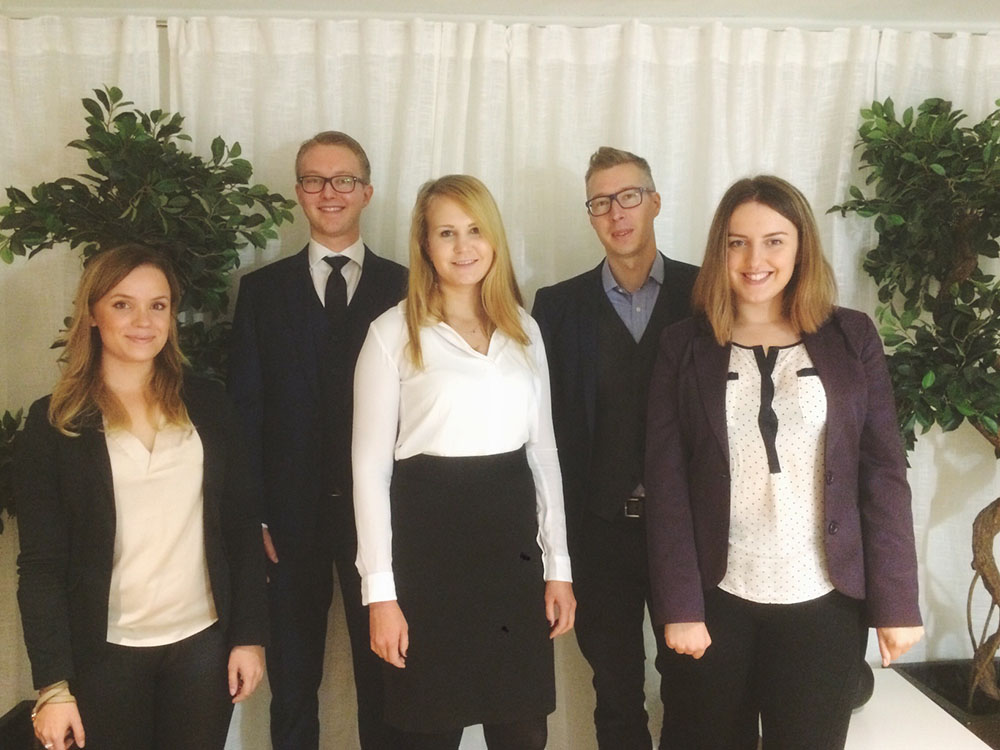I had the chance to attend Nordic Business Forum for the second time this year. After last year I was stunned at how excellent the event was compared to anything else, and this year was no different. Although a lot of the focus was on marketing, we also saw and heard great presentations on culture, and how to incorporate it into recruitment. Below are what I believe to be the five most essential ones.
1. Your Company’s Culture Is Set by the First 10-20 Employees
If you’re already a multinational giant you’ve either managed this part well, or you’re culture is very different from what it was like when you were a start-up. If, however, you’re still in that start-up/growth phase, this one point can define what your company will look like in a few years. Our company is around 20 people now and counting, and I feel like our company culture is more or less the same it was when I joined as one of the first employees.
The importance of having like-minded people right from the beginning is crucial; as 90% of start-ups fail, running a start-up can be like sailing the seas in a paper boat. You need everyone pulling in the same direction, heading for the same goals, and having a cohesive spirit. If you don’t, you’ll likely become part of the 90% majority.

Here’s a part of our first 20, ready for the NBF!
2. Leaders Need to Fix Mistakes, Not Stop Them from Happening
Dick Costolo said it best, and I believe it’s something that rings true for any successful leader. In a company where mistakes are seen as something to be ashamed of, there will be no innovation. Worse than that, the employees may be so afraid of making a mistake that they’ll end up doing as little as possible, and as securely as possible.
I don’t know who thinks this is the right way to go, but I’m surely not one of them. It’s better to let your people make mistakes, and then see how to fix them if needed. Besides, if your employees can’t operate independently, all of your time will be spent micromanaging them. If you want to be a micromanager go for it, but otherwise consider allowing your employees make their own mistakes and learn from them.
3. Employees First, Customers Second
This is similar to what every self-help book and airplane safety manual says – you can’t help others unless you help yourself first. In this case, you can’t offer the best service to your customers if you don’t first make sure to take care of your company. And, in case you hadn’t realized, your employees are your company. The more you focus on them, the better they will be at what they do, and the better you will be able to serve your customers in the end.

Gary Vaynerchuk, CEO of Vaynermedia spoke about leadership and culture, among other topics
4. Be up Front about What It’s Like Working with You
When hiring new people, there’s always some level of risk involved for both parties. Either one may be leaving something out, embellishing on certain details, etc. A great way to tackle this is to take the initiative, and be as open as possible about what it’s like working with you.
If your team likes to party a lot, tell the interviewee. If your team is big on sports and is active in the office, tell the interviewee. If your colleague has bad body odour, tell the interviewee (just kidding, that level of detail would probably scare anyone away). The bottom line is this: if you disclose everything, and the interviewee still wants to work with you, they have a much higher chance of being perfect for the team.
5. Prioritize the Strongest over the Weakest Link
This may be a bit controversial (at least in Finland if nowhere else), but hear me out. The more you support your strongest employees and help them develop, the more they will be able to give back. They can also help develop the others, and enable cumulative growth.
On the other hand, focusing on making a weak link stronger will at best bring them closer to the strongest, but you will still have an average (or below average) team. If you want to be one of the best, you need to have the top people in your organization. Sometimes it can be harsh, but not everyone wants to be the best – and maybe they would be happier somewhere else.
There was a whole lot more great information to go around at Nordic Business Forum 2016, but reading about it all would take very very long, not to mention how long it would take to write it all out. That said, someone has done just that.
To read more about culture, recruitment, and a whole lot else, check out our blog. We’re holding our second breakfast event in a couple of weeks – this time we’re talking about how to create company culture, stay tuned to read more about that!